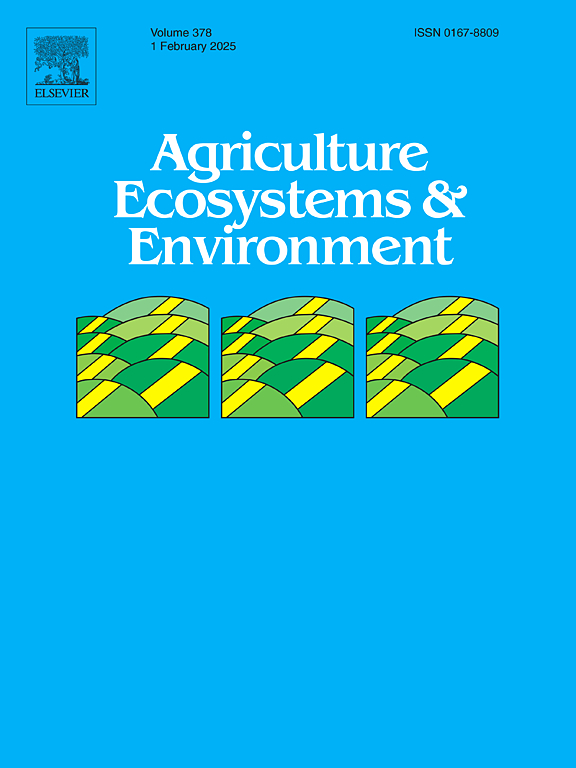Crop rotation mitigates soil fungal diversity loss under warming or increased moisture
IF 6.4
1区 农林科学
Q1 AGRICULTURE, MULTIDISCIPLINARY
引用次数: 0
Abstract
Understanding the response of soil fungal communities to climate change is crucial for predicting ecosystem resistance and optimizing agricultural management. Here, we combined a meta-analysis of 4968 peer-reviewed publications with a controlled microcosm experiment involving 600 pots to assess how warming and increased moisture affect soil fungal diversity and community composition in natural and agricultural ecosystems. Our results revealed that warming and increased moisture generally enhanced soil fungal alpha diversity in natural ecosystems, particularly in forests and grasslands. Conversely, monoculture farmlands exhibited significant reductions in fungal diversity under warming or increased moisture, while crop rotation systems mitigated soil fungal diversity loss under these conditions. Additionally, fungal communities in monoculture systems experienced lower species turnover and composition differentiation under warming and wetting, while crop rotation systems displayed higher resistance. Network analysis further demonstrated that crop rotation systems supported more complex and stable fungal co-occurrence networks, suggesting enhanced adaptability to climate stress. Lastly, structural equation modeling identified network complexity, driven by trophic guild diversity and beta diversity, as a crucial factor influencing fungal alpha diversity in rotation systems. These findings highlight the importance of diversifying cropping systems to enhance fungal community stability and resistance under climate change, providing practical insights for sustainable agriculture.
在变暖或湿度增加的情况下,作物轮作减轻了土壤真菌多样性的丧失
了解土壤真菌群落对气候变化的响应对预测生态系统抗性和优化农业管理具有重要意义。在这里,我们将4968份同行评审出版物的荟萃分析与600个盆栽的对照微观实验相结合,以评估气候变暖和湿度增加如何影响自然和农业生态系统中土壤真菌多样性和群落组成。研究结果表明,气候变暖和湿度增加通常会增加自然生态系统中土壤真菌α的多样性,特别是在森林和草原中。相反,在气候变暖或湿度增加的情况下,单一栽培农田的真菌多样性显著减少,而作物轮作系统在这些条件下减轻了土壤真菌多样性的损失。此外,在增温和湿润条件下,单作系统真菌群落的物种周转和组成分化较低,而轮作系统表现出较高的抗性。网络分析进一步表明,作物轮作系统支持更复杂和稳定的真菌共生网络,表明增强了对气候胁迫的适应性。最后,结构方程模型发现,由营养群落多样性和β多样性驱动的网络复杂性是影响轮作系统真菌α多样性的关键因素。这些发现强调了多样化种植制度对提高气候变化下真菌群落稳定性和抗性的重要性,为可持续农业提供了实践见解。
本文章由计算机程序翻译,如有差异,请以英文原文为准。
求助全文
约1分钟内获得全文
求助全文
来源期刊

Agriculture, Ecosystems & Environment
环境科学-环境科学
CiteScore
11.70
自引率
9.10%
发文量
392
审稿时长
26 days
期刊介绍:
Agriculture, Ecosystems and Environment publishes scientific articles dealing with the interface between agroecosystems and the natural environment, specifically how agriculture influences the environment and how changes in that environment impact agroecosystems. Preference is given to papers from experimental and observational research at the field, system or landscape level, from studies that enhance our understanding of processes using data-based biophysical modelling, and papers that bridge scientific disciplines and integrate knowledge. All papers should be placed in an international or wide comparative context.
 求助内容:
求助内容: 应助结果提醒方式:
应助结果提醒方式:


